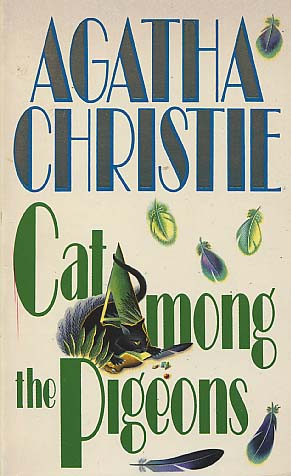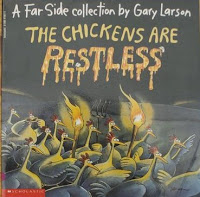I actually read more than 2 or 3 books in September! Love that journey for me.
Immediately after
Remember Me?, I read
She's Come Undone, which was a mistake. It's just so horribly sad and depressing in a way that is in no way hinted at in the rather quirky
summary. Wally Lamb is a good writer, and I cared about Dolores and wanted her to be happy, but yikes. Dolores is aptly named; the author points this out quite obviously in a patting-himself-on-the-back-for-being-so-clever way, and puts her through all sorts of sad situations. There is sort of a happy ending, at least, and Dolores finds the love she so craves. I did find the 1950s-70s upbringing interesting. Massive, massive trigger warnings for rape of a child, grooming by a predator, domestic violence, mental illness and institutionalization, fatphobia, nonconsensual sexual situations, semi-manipulated abortion, death, sex, homophobia, predatory lesbian trope, AIDS, stalking, religious abuse, alcohol and drug mentions/usage, binge eating and eating disorders, stillbirth, racism from an elderly character, infidelity. There's probably more but that's all I can think of. I left it behind in Mexico with a note telling my family not to read it (there's no way my Christian parents can handle that kind of story). Cover notes: I actually picked this up due to the interesting cover and title. It's actually the title of a 1970s song. 3 stars (4 stars for writing + 2 stars for story).
Immediately after flying back from Mexico, I flew to New York to visit my sister and her family (I have a nephew now and he's the cutest baby in the world). We mostly hung out and went to restaurants and
bookstores. I bought
Herland by Charlotte Perkins Gilman from Westsiders Rare & Used Books (such a fun bookstore). This feminist utopia is a reread for me, and I love it. Read my previous
review here, and my mini essay comparing it to
The Left Hand of Darkness here. It's so interesting how she points out that a lot of what we consider gender or how women naturally are is a result of the patriarchy and its gender roles (this was written in 1915!). However, I noticed this time how eugenics-y the book is: the Herland women are all white, despite being in a hidden part of South America or something, and they've deliberately bred themselves to be strong and tall and good at stuff and resist disease and smart, etc. I didn't really realize it until I read a quote from CPG that said that white men and women need to come together to improve the lower races, or something. All the great 19th and 20th century white feminists were all racist as hell, unfortunately. Anyway, I do like this book, but be aware of the racism and eugenics-y ways of thinking. It's critical of capitalism, the patriarchy, and Christianity (but rightfully so, imo). Loved the misandry though. 4 stars, keeping.
Another reread this month was James Finn Garner's
Politically Correct Bedtime Stories. These are fun PC satires of classic fairy tales, and it's funny to read how the tales were transformed. For instance, Red Robin Hood and the wolf chop up the woodcutter for being so sexist and speciest as to think RRH needed his help with the wolf. Per usual, one isn't sure whether Garner is poking fun at capitalism etc. or PC culture itself. I reread this one because I'm giving the series away. Trigger warnings for fairytale-typical violence, I guess? 3.5 stars, giving away.
My last read for September was
The Chickens Are Restless, a The Far Side comics compilation. I love Gary Larson's The Far Side so much. I got this from the thrift store, and I'm pretty sure I'd already seen all of these (although there were some comics I didn't remember seeing before). These are classics for a reason. I wonder, if I were to walk past all the faculty office doors at my school, how many would have a TFS comic taped to it. Probably a lot, in the sciences. 4 stars, keeping.

















